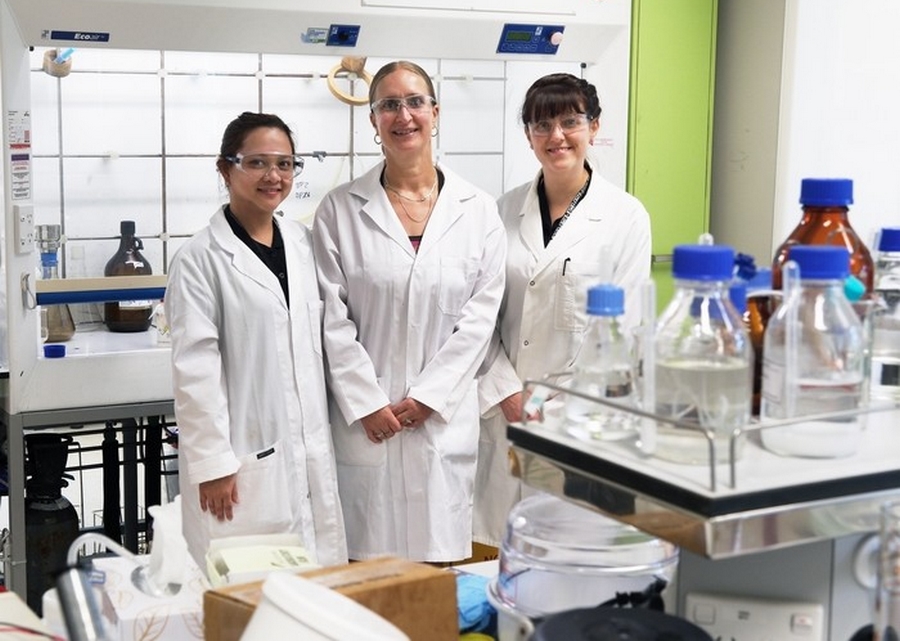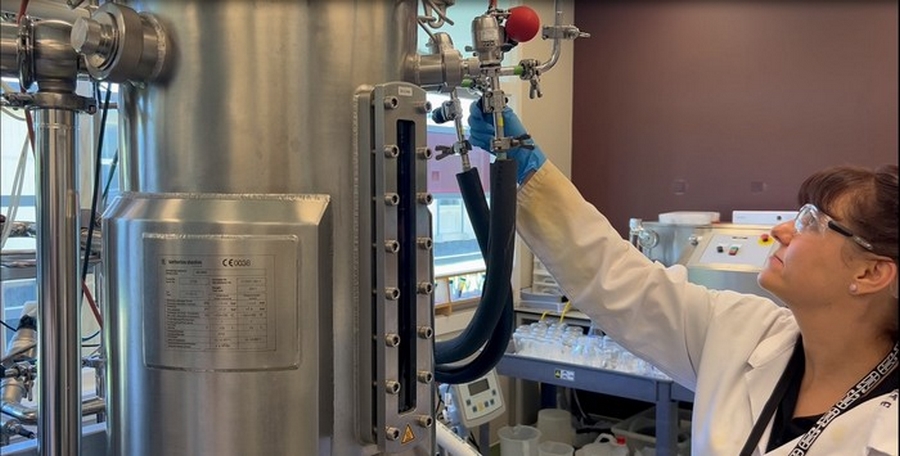Celebrating International Day of Women and Girls in Science
9 February 2024
Being a woman in science is not easy, but it is rewarding and can achieve better outcomes, Scion scientists say.
This Sunday (February 11) is the International Day of Women and Girls in Science, an opportunity to recognise the achievements of women and girls in science while promoting gender equality and eliminating discrimination.
The day aims to inspire more women and girls to seek out STEM-related fields like science, technology, engineering, and mathematics. It is a reminder that women and girls play a critical role in science and technology and their participation should be strengthened.
According to the latest UNESCO Science Report, less than 30% of the world’s researchers are women. In the New Zealand forestry sector, that number is 18%.
At Scion, as of January about 49% of the 380 employees were women including 113 science technicians and 71 scientists.
Among them are senior lab technician Anna de Lena, Bio/Organic Chemistry team lead Beatrix Theobald and bioprocess engineer Carla Cronje.

De Lena says women can bring creativity and unique perspectives to the table.
“Women in science not only serve as mentors but they also inspire others ... It’s not just about gender equality it’s about empowering each other to reach their full potential in science and create a more inclusive scientific community.”
Cronje says society’s problems can’t be solved by one person.
“I think women bring a very unique skillset to the team and a diverse view and if we’re going to find solutions for the long-term problems, we really need everybody on board.”
She says in her experience collaboration achieves better results.
“I found that when you really listen to everybody in the room you get better solutions - the quiet person the reserved person - give everybody a voice and you actually find a solution much quicker and more efficiently.”
Theobald says she always loved and was fascinated by science. “It’s interesting and it’s exciting and we’re discovering things, learning things, no two days are the same.”
De Lena says science is a rewarding career due to the constant problem-solving challenges and chances to make a tangible impact through innovation and collaboration.
“I've discovered deep fulfillment in contributing to science, research and innovation.
“Mentorship and a profound sense of purpose can help you overcome tough times and do well in science.”
But as Theobald says, it’s not easy.
“I still became a scientist despite everything ... I'm not saying it was easy studying, it was very hard and very frustrating. As a female you always have to work a lot harder than everybody else.”
But her message for aspiring scientists is simple: "Instead of fighting and trying to prove yourself, try to work on yourself ... Learn your strengths, learn your faults or weaknesses and use them and if you don’t like them change them ... Once you have the confidence then you will find your place in any environment. Even in science.”
Women in leadership
Women hold some of Scion’s most senior leadership roles: Tara Strand is GM for Forests and Landscapes, Justine Wilmoth is GM for Finance and Corporate Services and Shontelle Bishara is Te Toihau Māori, GM for Māori Futures. Scion’s Board of Directors is chaired by Dr Helen Anderson and other board members include Kiriwaitingi Rei-Russell and Nicole Anderson.
Many of the 184 female scientists and science technicians employed at Scion, have notable achievements, from winning awards to leading portfolios and research groups. Current portfolio leaders include Yvette Dickinson (Designing Forests), Katerina Pihera-Ridge (Restoring and Protecting the Mauri of Te Waonui a Tāne), and Elizabeth Dunningham (acting Trees to High-Value Wood Products).
Scion research group leaders include Kim McGrouther (Chemistry and Physics), Elizaveta Graevskaya (Data and Geospatial Intelligence), Marie-Joo Le Guen (Materials, Engineering & Manufacturing, and Sierra De La Croix (Te Ao Māori).
In September, Le Guen was among authors who contributed to a research paper published in the scientific journal Nature Plants – one of the most respected scientific journals in the world.
Last year, Scion’s Microplastics Team, led by Dr Kate Parker, received a Team Award at the Science NZ awards for work researching marine-based microplastics.
Supporting and celebrating wāhine
In response to requests from female students for more links into the forestry sector, a Wāhine in Forestry group was created in by the Canterbury West Coast Wood Council about 18 months ago.
The group aims to encourage and empower women to succeed in the forestry industry by connecting and advocating for them through initiatives that promote gender equality, professional development, and networking opportunities.
While the day might be a special day of acknowledgement, we should celebrate these wāhine today and every day.
This week the United Nations hosted an assembly for the International Day of Women and Girls in Science. At a previous annual assembly, 10-year-old Anya Daneez Khan highlighted the day’s importance.
“The reason we celebrate this day is to make sure it becomes not a story about exceptional women but a norm that girls belong and succeed in science and technology.”

